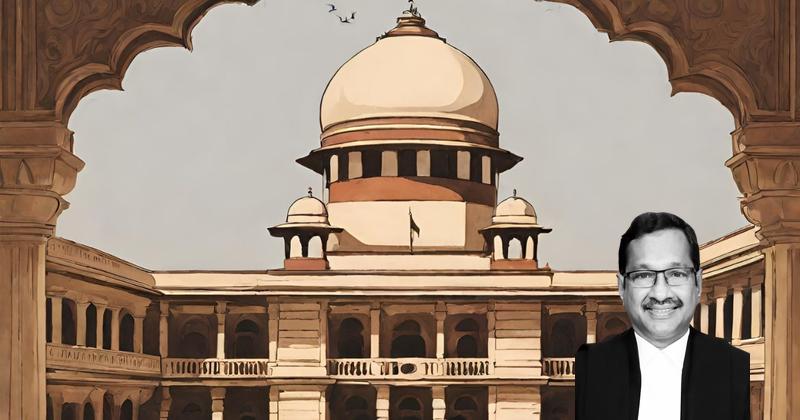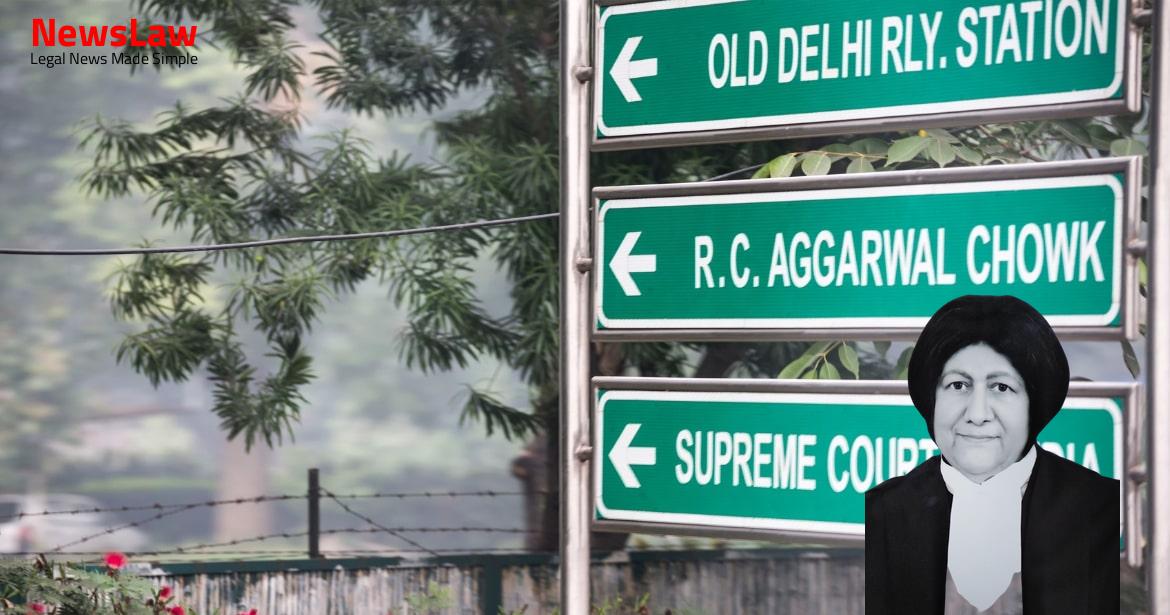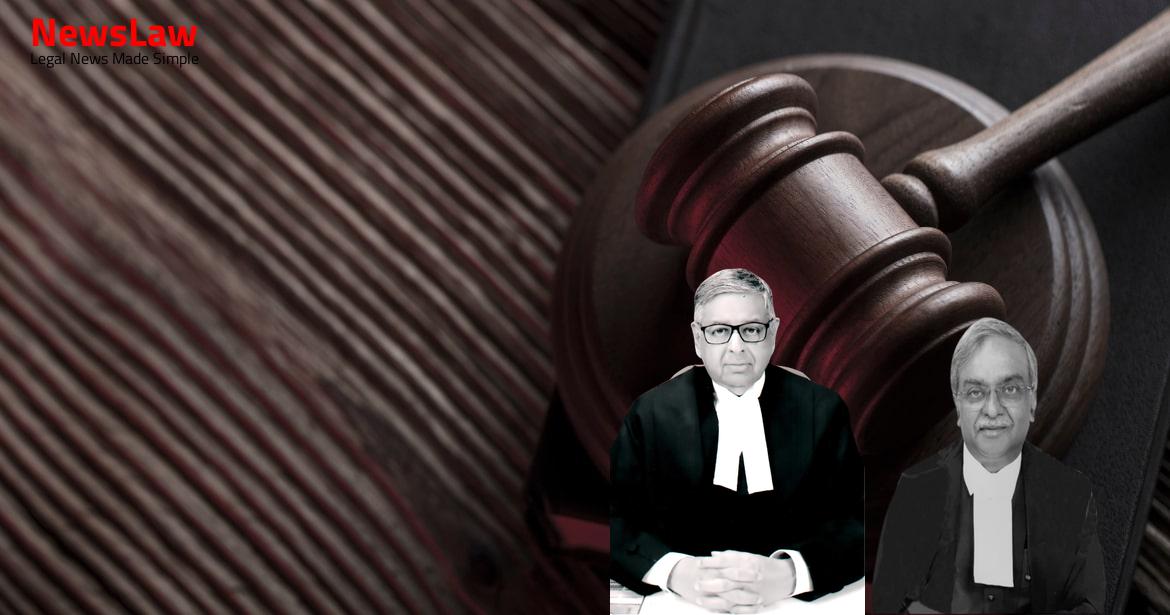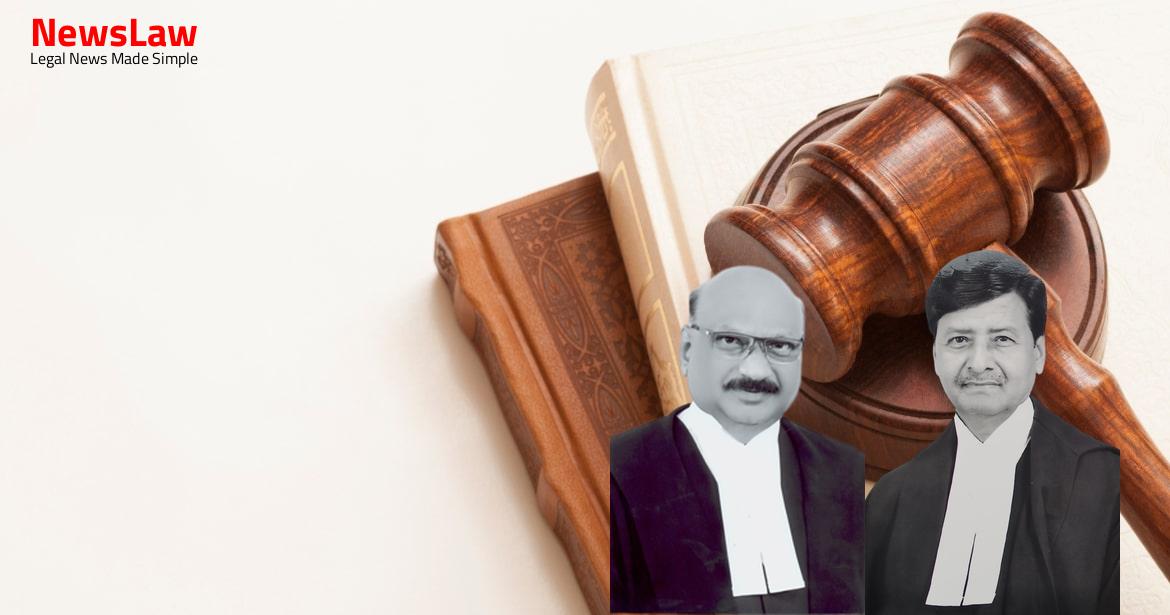The Appellants assail the judgment and decree of the Trial Court and the High Court of Judicature at Madras, dismissing the suit filed by Respondent No 1 and Respondent No 2 for partition and separate possession of the plaint schedule properties. No 357 of 1985 before the Trial Court filed for partition and separate possession of plaint schedule properties. The plaint averments are that Respondent No 1 is the son of the propositus through 3 Respondent No 2/Ramayee.
Also Read: https://newslaw.in/supreme-court/partition-rights-and-coparcenary-property/
Respondent
No 3 is also the son of the propositus through Respondent No 4/Ammasi Ammal. 3 and 4, or result in partition, the suit for partition of plaint schedule into three equal shares was filed and allot to Respondent Nos. 3 and 4 filed written statements denying the factum of marriage between Respondent No 2 and Muthusamy Gounder, stating 4 that Respondent No 1 alone is a member of the Hindu Undivided Family (HUF) of Muthusamy Gounder. The Appellants further averred that upon the demise of the propositus, the parties to the suit have inherited the plaint schedule properties as the legal heirs of the late Muthusamy Gounder. 1, and the status of marriage of Respondent No 2 and Appellant No 2 with Muthusamy Gounder, and a coparcenary existed with the extended family members. Appellant No 2 and Respondent
No 2 did not produce evidence to prove the factum of the marriage with Muthusamy Gounder. The Trial Court records a categorical finding that Appellant No 2 and Respondent No 2 are not the wives of Muthusamy Gounder, and consequently, the status of the children through the extended family as coparceners was rejected.
Also Read: https://newslaw.in/case-type/civil/preserving-chittorgarh-fort-courts-analysis-on-mining-activities/
1 and 2, assuming failed in establishing the status of a valid marriage of Appellant No 2 and Respondent No 2 with Muthusamy Gounder, still the entitlement of a share as sons/children of Muthusamy Gounder through the extended family of Muthusamy Gounder should have been considered.
Therefore, Appellant No 1 and likewise Respondent No 1 even are children of Muthusamy Gounder through a void or voidable marriage, still the children of Muthusamy Gounder through extended family are entitled to a share in the half share of Muthusamy Gounder in the schedule properties. B-3 and B-6 constitute, firstly, an admission in the form of a substantive piece of evidence by Muthusamy Gounder on the status of Appellant No 1 and Respondent
No 1 as his sons, coupled with corroborative documentary evidence in Ex. Therefore, the Counsel argues that given the settled legal position on the status of sons of Muthusamy Gounder through Appellant No 2 and Respondent No 2, a decree for partition though not as prayed for, is passed, but a preliminary decree of partition firstly on plaint schedule properties between Muthusamy Gounder and Respondent No 3 is made, and a further decree, distributing the share of Muthusamy Gounder to Appellant Nos. Thus, it presupposes the Appellants do not press the claim as coparceners of the family of Muthusamy Gounder; however, from the material on record, they claim a share from the share as the children of Muthusamy Gounder. Admission defined admission is a statement, oral or documentary, which suggests any inference as to any fact in issue 10 or relevant fact, and which is made by any of the persons, and under the circumstances, hereinafter mentioned.” 1 Admission is a conscious and deliberate act and not something that could be inferred.
Admission by party to proceeding or his agent.–– Statements made by a party to the proceeding, or by an agent to 11 any such party, whom the Court regards, under the circumstances of the case, as expressly or impliedly authorised by him to make them, are admissions. Statements made by –– (1) by party interested in subject-matter.–– persons who have any proprietary or pecuniary interest in the subject-matter of the proceeding, and who make the statement in their character of persons so interested, or (2) by person from whom interest derived.–– persons from whom the parties to the suit have derived their interest in the subject- matter of the suit, are admissions, if they are made during the continuance of the interest of the persons making the statements ..” Section 18 of the Act deals with: (i) admission by a party to a proceeding, (ii) his agent, (iii) by a suitor in a representative character, (iv) statements made by a party in trusted subject matter, (v) statements made by a person from whom interest is derived. B-6 is the registered mortgage deed dated 01.11.1976 executed by Muthusamy Gounder/propositus in favour of one Karuppana Gounder. No 66 of Pallipayam, Agraharam Village was the mortgage deed executed by Muthusamy Gounder in favour of Karuppana Gounder.
B-6, mortgage deed, would show that Muthusamy Gounder treated Appellant No 1, Respondent No 1 and Respondent No 3 as his sons. By applying Sections 17 and 18 of the Act, we are convinced that Muthusamy Gounder made a statement describing Appellant No 1 and Respondent No 1 as his sons and treated as an admission by record. Accepting this argument, the High Court allowed the appeal holding that where the children from the first wife brought a suit for possession of their father’s property the second marriage of their father, disputing the admission of their deceased father that the defendant, as his legally wedded wife, was binding on the Plaintiffs. Respondent No 3 is claiming through Muthusamy Gounder, the common predecessor in interest; therefore, the admission is binding on Respondent No 3 as well. 3 claims to be the daughter of Muthusamy Gounder, and the law, as applicable to the separate share of Muthusamy Gounder, grants an equal share to the daughter along with the sons of Muthusamy Gounder. In terms of sub-section (1) of Section 16, a child of a marriage which is null and void under Section 11 is statutorily conferred with legitimacy irrespective of whether : (i) such a child is born before or after the commencement of the amending Act, 1976; (ii) a decree of nullity is granted in respect of that marriage under the Act and the marriage is held to be void otherwise than on a petition under the enactment; 81.2.
In other words, a child who is legitimate under sub-section (1) or sub-section (2) of Section 16 of the HMA would, for the purposes of Section 3(j) of the HSA, 1956, fall within the ambit of the explanation “related by legitimate kinship” and cannot be regarded as an “illegitimate child” for the purposes of the proviso; 81.5. Prior to the substitution of Section 6 with effect from 9-9-2005 by the amending Act of 2005, Section 6 stipulated the devolution of interest in a Mitakshara coparcenary property of a male Hindu by survivorship on the surviving members of the coparcenary.
As a consequence of the substitution of Section 6, the rule of devolution by testamentary or intestate succession of the interest of a deceased Hindu in the property of a joint Hindu family governed by Mitakshara law has been made the norm; 81.7. According to the Explanation, the interest of a Hindu Mitakshara coparcener is deemed to be the share in the property that would have been allotted to him if a partition of the property has taken place immediately before his death irrespective of whether or not he is entitled to claim partition; 81.9. Once the share of the deceased in property that would have been allotted to him if a partition had taken place immediately before his death is ascertained, his heirs including the children who have been conferred with legitimacy under Section 16 of the HMA, 1955, will be entitled to their share in the property which would have been allotted to the deceased upon the notional partition, if it had taken place; and 81.10.
Case Title: RAJA GOUNDER AND ORS. Vs. M.SENGODAN AND ORS. (2024 INSC 47)
Case Number: C.A. No.-000600-000600 / 2024



